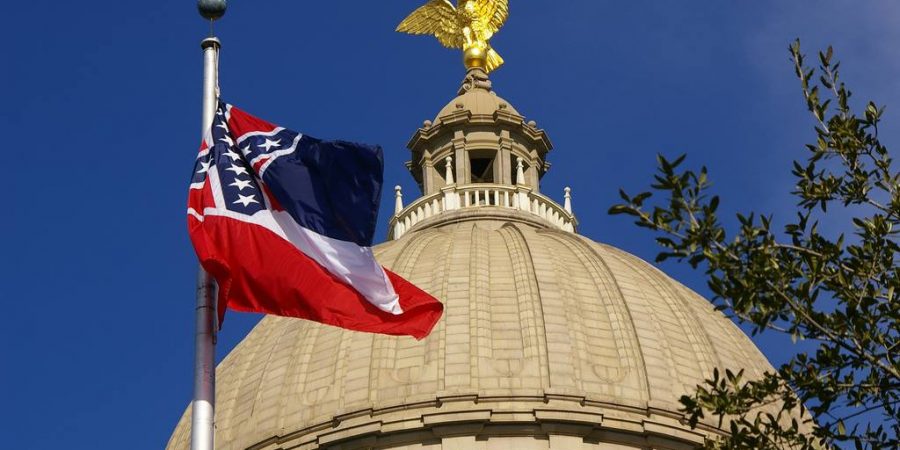A nation that still honors Confederate signs in public places signals its belief that Black people are less important than white people...
Opinion: Rejecting symbols of hate is more than symbolic

If you’re a Black teenager in the South, each day passing a memorial to someone who committed treason in order to keep your ancestors enslaved, how might that make you feel? If you’re a white American who still points to the “heritage” of the “lost cause,” it might further ingrain your denial of the brutality of slavery and how racism continues today.
A nation that still honors Confederate signs in public places signals its belief that Black people are less important than white people, that Black people’s trauma can be disregarded. Confederate flags signal to the public that it’s okay to keep ignoring the worst and ugliest sins of our past, while trying to create an impenetrable barrier to a different and better future.
Let’s be very clear: Tearing down symbols is not enough. Changing statues can never substitute for changing policies and practices based on skin color, which still undergirds this country’s systematic racism. But symbols do send clear messages about personal and national memory — and about future possibilities.
The surging nationwide movement in defense and support of Black lives, sparked by the killing of George Floyd, has led to a renewed debate over the symbols and signals of white supremacy that persist throughout the United States — Confederate monuments and flags, but also statues, streets, buildings, military bases and other spaces and objects memorializing historical figures known for their treason, racism and oppression.
Confederate statues, as well as statues of Christopher Columbus and other colonizers, have been sprayed with graffiti and, in some cases, torn down by groups of protesters in recent weeks. A number of mayors and governors have announced their intention to remove these symbols of racial oppression and hate.
The governor of Mississippi signed a law July 1 that will retire its current state flag, the last one in the country that still featured the Confederate battle emblem. Last month Virginia Gov. Ralph Northam announced his intention to remove the statue of Confederate General Robert E. Lee from the historic Monument Avenue in Richmond, which was the capital of the Confederacy.
After years of pressure by activists, students and alumni, Princeton University’s president announced the removal of President Woodrow Wilson’s name from its School of Public and International Affairs, due to Wilson’s well-documented racism. President Christopher L. Eisgruber, who had previously opposed removing Wilson’s name, said this:
Princeton is part of an America that has too often disregarded, ignored and turned a blind eye to racism, allowing the persistence of systems that discriminate against black people. When Derek Chauvin knelt for nearly nine minutes on George Floyd’s neck while bystanders recorded his cruelty, he might have assumed that the system would disregard, ignore or excuse his conduct, as it had done in response to past complaints against him.
RELATED: Trump unmasked his racist campaign strategy — and Christians have choices to make
These developments have sparked a healthy and necessary debate. Some have long warned against becoming complacent with symbolic change if it is not also accompanied by changes to the deeper systems of white supremacy. Removing a statue or renaming a street is easier than fixing our broken and racist criminal justice system. Some political leaders may even use the removal of a symbol as a diversion meant to quell the pressure for deeper systemic change.
This is true. But symbols do have an enormous impact on a society’s culture and norms and people’s ability to thrive as they live their daily lives, both consciously and implicitly. Symbols shape both memory and future. A society cannot change the way it is structured unless it is willing to tell the truth about itself and its past.
In a searing, essential essay last week, poet Caroline Randall Williams powerfully explained why removing the symbols and signals of white supremacy is so necessary:
I am more than half white, and none of it was consensual. White Southern men — my ancestors — took what they wanted from women they did not love, over whom they had extraordinary power, and then failed to claim their children.
What is a monument but a standing memory? An artifact to make tangible the truth of the past. My body and blood are a tangible truth of the South and its past.
… I say the monuments of stone and metal, the monuments of cloth and wood, all the man-made monuments, must come down. I defy any sentimental Southerner to defend our ancestors to me. I am quite literally made of the reasons to strip them of their laurels.
As has been his practice since he defended the neo-Nazis and white supremacists in Charlottesville as “very fine people on both sides,” Donald Trump has again taken the side of defending “white heritage” — which is just another term for white supremacy in America. Earlier this month he tweeted, “This is a battle to save the Heritage, History, and Greatness of our Country.” Fourteen words that echo the infamous 14-word slogan of white supremacists: “We must secure the existence of our people and a future for white children.”
This came just a day after the president retweeted a now-deleted video in which a Trump supporter shouts “white power” at protesters.
We’re long past the point of dismissing his regular defense of and support for white nationalism — both in symbol and in substance — as inadvertent or coincidental. He comes so strongly to the defense of Confederate monuments precisely because they are symbols of whiteness and oppression that fuel racial hatred, and he actively covets the support of those who honor these symbols and what they truly stand for. He calls them “his base.”
Some pastors in the South are calling for the removal of Confederate monuments. But we should ask: Why aren’t they all? Are the white evangelicals who support Trump willing to call him wrong for supporting these symbols?
On Wednesday, Donald Trump called the affirmation that “Black lives matter” “a symbol of hate.” Does supporting Trump for the judges he appoints require Trump evangelicals to support his racism or look the other way when he appeals to his white base on the basis of their racism? Or are these white evangelical churches and congregants actually a part of Trump’s racist white base? What do you do when the president of the United States has become “a symbol of hate” — and how do you support him if you are a Christian?
(The Rev. Jim Wallis is president of Sojourners. His new book Christ in Crisis: Why We Need to Reclaim Jesus is available now. Follow Jim on Twitter @JimWallis. The views expressed in this commentary do not necessarily reflect those of Religion News Service.)
Read more news at XPian News… https://xpian.news




Comments are Closed